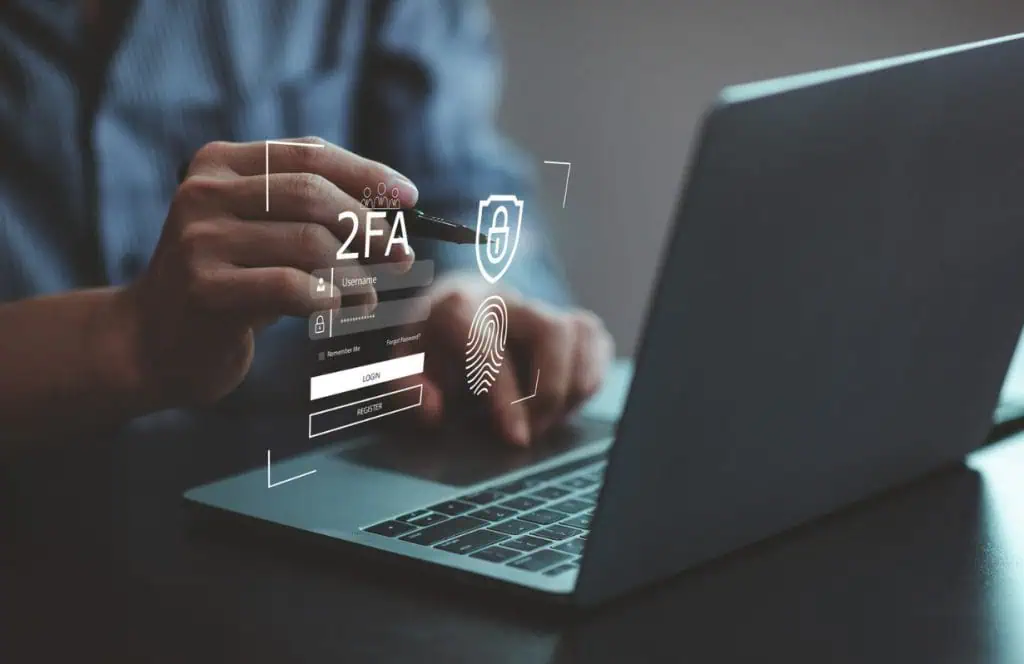Businesses these days rely more than ever on technology to manage operations, communicate with clients, and store sensitive data. This growing reliance on tech means cybersecurity should always be a consideration, whether you’re running a small startup or a large enterprise.
Table of Contents
But many small businesses think they won’t be a target for cybercriminals. Sadly, these criminals know that smaller companies often have fewer defenses, making them easier prey and fast targets. So by understanding cybersecurity threats and taking steps to protect against them, any business can help secure its future.
On this post, let’s further take a look at why cybersecurity should always be a consideration for any business and the steps you can do to protect your own company.

Why small businesses are common targets for cybercriminals
Small businesses might think they’re too small to be targeted by hackers, but this assumption can lead to big problems. Cybercriminals know smaller businesses often don’t have the same security measures as larger companies, making them an easier way in.
Small companies may also handle valuable customer data, like credit card details, that can be very appealing to hackers. While the prize for stealing from a smaller business is probably lower than that of a larger company, the ease of access is what makes it so appealing.
When a small business is hacked, it can face significant setbacks. Unlike large companies with dedicated cybersecurity teams, small businesses might not have the resources to respond effectively to a cyberattack.
This lack of preparedness can lead to financial losses, damaged customer trust, and, in some cases, even the business closing. The lesson here is simple: size doesn’t make a business safe; taking cybersecurity seriously does.

The impact of cyberattacks on businesses of any size
Cyberattacks can have major impacts on businesses of all sizes, from financial losses to a damaged reputation. When a business experiences a data breach, it often needs to spend money on fixing the issue, restoring systems, and sometimes even compensating affected customers.
For large companies, these costs can be high, but for smaller ones, they can be crippling. A business’s reputation is also at risk after a cyberattack. Customers may feel less safe sharing their personal information if they know the business has been hacked.
For a small business that relies on local customers, losing their trust can make it hard to recover. Large or small, no company is immune to the financial and reputational effects of a cyberattack, which is why taking precautions is so important.
The role of IoT security in business
The Internet of Things has changed the way businesses operate by connecting everyday devices, like security cameras and smart thermostats, to the internet. This connectivity allows businesses to monitor their equipment, improve efficiency, and even save money on things like energy bills.
However, each IoT device also creates a potential entry point for hackers, especially if it isn’t properly secured. For example, a small business might have a smart security system to monitor its office, but if the system’s software isn’t up-to-date, it could become vulnerable to cybercriminals.
Hackers could potentially break into the network through this single device, gaining access to other connected systems and sensitive information. To protect IoT devices, businesses should regularly update them, use strong passwords, and, whenever possible, separate IoT devices from other business networks.
In the healthcare industry, IoT devices are not just a convenience–they’re essential. Medical devices like pacemakers, insulin pumps, and even MRI machines can now be monitored and controlled remotely.
While this allows healthcare professionals to provide more responsive care, it also creates a unique set of cybersecurity risks. A cyberattack on a medical device could put patient safety at risk, and the consequences could be life-threatening.
Healthcare providers need to take special steps to ensure medical device cybersecurity is up to date. This includes regularly updating software, using strong network security measures, and limiting device access to authorized personnel only.
Hospitals and clinics should also consider working with cybersecurity experts to make sure that their medical devices meet industry standards for security. In the medical field, cybersecurity is not only about protecting data but also about ensuring patient safety.
Simple steps for improving your business’s cybersecurity
One of the simplest ways to boost cyber security is to use strong, unique passwords for each device, account, and application. Businesses should avoid using common passwords like “123456” or “password” and instead create long, complex passwords that are hard to guess.
Additionally, enabling multi-factor authentication adds an extra layer of protection by requiring users to verify their identity in multiple ways before accessing sensitive systems. Regularly updating software and systems is another important step.
Many cyberattacks happen because hackers exploit weaknesses in outdated software. By keeping everything updated, businesses can reduce the risk of these kinds of attacks. Even if it seems like a small step, staying updated on security patches and software versions can go a long way in protecting a business’s data and systems.
Furthermore, businesses managing complex IT environments should customize their cybersecurity strategies by using firewalls, encryption, and intrusion detection systems to safeguard networks, data, and applications, minimizing the risk of cyber threats.

Training employees to recognize cybersecurity threats
Employees play a huge role in a business’s cybersecurity, as many cyberattacks begin with phishing emails or other forms of social engineering. Phishing attacks trick employees into sharing passwords, clicking on malicious links, or downloading harmful files.
By training employees to recognize these kinds of threats, businesses can prevent attacks before they happen. Cybersecurity training should cover the basics, like how to recognize a suspicious email, avoid clicking on unknown links, and handle sensitive information properly.
Encouraging employees to report any suspicious activity right away is also crucial. When employees are well-trained and aware of potential threats, they become the business’s first line of defense against cybercriminals.
Backing up data to reduce downtime after an attack
No cybersecurity plan is completely foolproof, so it’s essential for businesses to back up their data regularly. A backup is a copy of important files and information stored separately from the main system, which can be restored if the original data is lost or corrupted.
Having regular backups means that, even if an attack happens, the business can recover its data without too much downtime. For many small businesses, a simple cloud storage solution or external hard drive may be enough for backups.
Larger companies might need more complex solutions, such as off-site servers or encrypted storage. The key is to make sure backups are done consistently and stored in a secure place, so the business can get back on its feet quickly in the event of a cyberattack.
Balancing security with convenience in the workplace
Cybersecurity measures can sometimes feel like extra steps that slow down work, but they’re necessary to protect your business and its customers.
For example, MFA requires users to verify their identity each time they log in, which can seem time-consuming, but it makes it much harder for hackers to break in. Balancing security with convenience helps ensure that protective measures are followed without disrupting productivity.
One way to achieve this balance is by choosing security tools that are user-friendly and designed to work with existing systems. For instance, some password managers allow employees to access secure passwords easily without having to remember complex passwords themselves.
When security tools are convenient to use, employees are more likely to stick to safe practices, helping protect the business as a whole. So whether it’s a small family business or a large corporation, cybersecurity should always be a priority.
Cybercriminals target all kinds of businesses, and no one is truly immune from risk. By taking steps to secure devices, train employees, and prepare for possible attacks, businesses of any size can create a strong defense against cyber threats.
In an age where data breaches are common, businesses that demonstrate a commitment to cybersecurity stand out. By focusing on cybersecurity, companies of all sizes can protect their operations, customers, and future growth.



